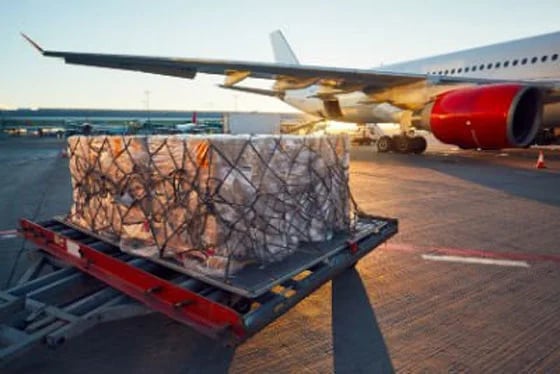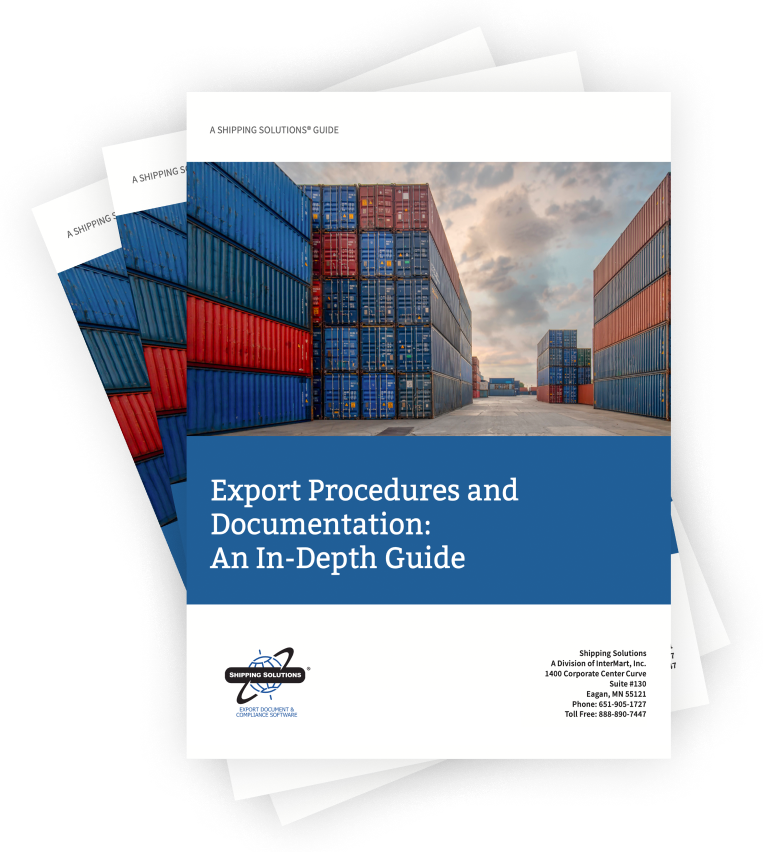The International Trade Blog Import Procedures
Freight Forwarder vs. Customs Broker: What's the Difference?
On: April 7, 2025 | By:  David Noah |
5 min. read
David Noah |
5 min. read
 Many importers and exporters, especially beginners, assume that freight forwarders and customs brokers are two names for the same thing. I'm afraid that's not true.
Many importers and exporters, especially beginners, assume that freight forwarders and customs brokers are two names for the same thing. I'm afraid that's not true.
Freight forwarders and customs brokers provide specific types of services, and each plays an important role in international trade and international shipping. Many international transactions use the services of both forwarders and brokers and sometimes a single company will do both.
Here's what you need to know about forwarders and brokers, how they fit in the international shipping process and specific examples of how they may be used.
Freight Forwarder: A Definition
In a typical international transaction, the company exporting their goods hires a freight forwarder to help arrange for the safe transportation of their goods. However, depending on the term of the sale, the foreign buyer may be the entity that hires the freight forwarder. In either case, the forwarder arranges for the transportation of the goods by contracting with appropriate carriers for truck, rail, ocean and/or air transportation.
In addition to saving time and money in arranging transportation, forwarders use their expertise to help shippers prepare the proper paperwork, understand export regulations and import requirements, and provide advice to ensure the goods are properly packed and insured.
Jay Devers, managing partner of Bestway International in Kansas City, Missouri, uses the analogy of the freight forwarder as a “travel agent for cargo,” a third-party entity who arranges the trip, and then, for a sum of money, helps ensure it happens as planned. Keep in mind that while forwarders can assist with export compliance, it is the exporter who is ultimately liable for ensuring compliance.
According to the National Customs Broker and Forwarders Association of America (NCBFAA), ocean forwarders in the United States are licensed by the Federal Maritime Commission, and air forwarders must maintain an International Air Transport Association (IATA) number and are considered Indirect Air Carriers who are regulated by the Transportation Security Administration (TSA).
Customs Broker: A Definition
According to the Department of Homeland Security, a customs broker is defined as a "private individual, partnership, association or corporation licensed, regulated and empowered by U.S. Customs and Border Protection (CBP) to assist importers and exporters in meeting U.S. government requirements governing imports and exports." In other words, they help importers clear their goods through customs in the country of import.
Brokers submit necessary information and appropriate payments to CBP on behalf of their clients and charge them a fee for this service. They must have expertise in the entry procedures, admissibility requirements, classification, valuation, and the rates of duty and applicable taxes and fees for imported merchandise.
A customs broker is a specific term used to identify the intermediary between the importer and the government’s customs department in the country of import. In many countries including the United States, a person must pass a customs broker exam to be licensed to operate in that country.
Understanding the Difference between Freight Forwarders and Customs Brokers
- Freight forwarder is a wide-ranging term, whereas customs broker is very specific—among other requirements, U.S. customs brokers must be licensed.
- Many freight forwarders are customs brokers as well (or have access to brokerage services), but not every customs broker is a freight forwarder.
- Customs brokers focus on the import side of an international transaction. For exporters, the customs broker is a foreign country conversation. Exporters don’t need a U.S. customs broker because they are shipping out of the country.
- An exporter’s freight forwarder can work with a customs broker to help solve issues with an international shipment.
Freight Forwarder vs. Customs Broker: Examples
Consider the following real-life examples that show the differences between a freight forwarder and a customs broker:
Example 1
An exporter in Minnesota wants to send a pallet of equipment to Toronto. Their freight forwarder provides a quote for the shipment and asks if the customer in Canada has a customs broker. They reply yes, so the freight forwarder handles only the shipping.
The exporter, working with the importer, will need to contractually agree on the terms of sale, usually including the specific Incoterms 2020 rule that identifies who hires the customs broker, among other things.
In this example, the freight forwarder and customs broker are two separate entities; the exporter must manage both their partnership with the forwarder and the transaction with the importer.
Example 2
In this example, the exporter instead replies that the customer in Canada doesn’t have a customs broker, so the freight forwarder asks if the exporter would like the freight forwarder's help clearing customs in Canada.
The exporter says yes, which changes the transaction for the forwarder; now, instead of just handling the shipping to Canada, the forwarder manages the shipping plus arranges for customs clearance. This includes the payment of duties, taxes and anything else associated with bringing goods into Canada from the U.S.
By partnering with a Canadian customs broker, the freight forwarder offers their customer a full-service experience (because the customer doesn’t have to arrange a customs broker). In this example, the equipment will be delivered without the exporter having to do any extra work on the import side.
The Value of Good Partnerships
No matter which route you choose in your export transaction, a good freight forwarding partner is invaluable. Shipping logistics can be difficult, detail-oriented and rigorous, and are almost always best handled by an expert.
A good partner will also remind you that you are ultimately liable for your exports and therefore include you in the exporting process, especially when it comes to completing export documentation. (The criteria for importers considering a customs broker is very similar!)
Check out our other blog posts about establishing a good relationship with your freight forwarder:
- 4 Things the Best Freight Forwarders Have in Common
- 4 Steps for Ensuring a Good Relationship with Your Freight Forwarder
- If You’re Relying on Your Freight Forwarder for Export Compliance, You’ve Probably Already Violated the Law
Like what you read? Subscribe today to the International Trade Blog to get the latest news and tips for exporters and importers delivered to your inbox.

About the Author: David Noah
As president of Shipping Solutions, I've helped thousands of exporters more efficiently create accurate export documents and stay compliant with import-export regulations. Our Shipping Solutions software eliminates redundant data entry, which allows you to create your export paperwork up to five-times faster than using templates and reduces the chances of making the types of errors that could slow down your shipments and make it more difficult to get paid. I frequently write and speak on export documentation, regulations and compliance issues.



